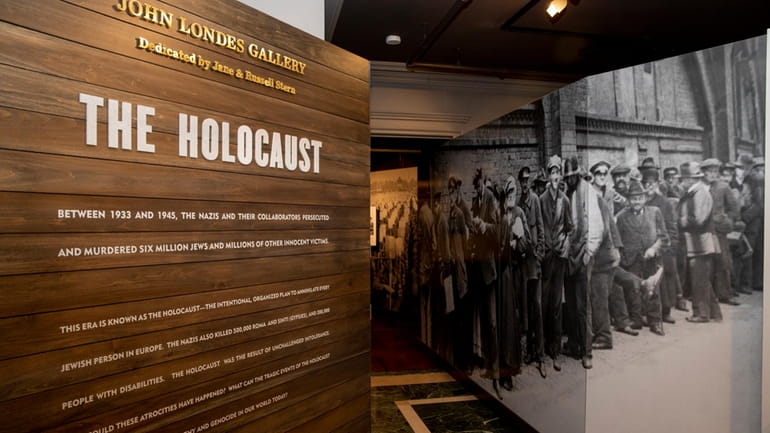Interfaith call to confront hate on LI

The Holocaust Memorial & Tolerance Center in Glen Cove. Credit: Yeong-Ung Yang
On Thursday, Holocaust Remembrance Day, we will again mourn 6 million Jews murdered by Nazi hatred.
“The Holocaust didn't come out of nowhere," Gideon Taylor, an attorney pursuing Jewish claims against Germany, said at last year’s Conference on Jewish Material Claims Against Germany. “Before there were ghettos and camps and cattle cars, words were used to stoke the fires of hate.”
Sometimes these words of hate seem quite “ordinary,” like jokes that debase another group, but such words can seed extraordinary crimes of violence, even genocide.
The Holocaust happened partly because few people spoke out when the Nazis first spewed their hateful words. Dietrich Bonhoeffer, a German Lutheran pastor who denounced Nazi hatred early on, said, “Silence in the face of evil is itself evil. God will not hold us guiltless. Not to speak is to speak. Not to act is to act.”
Historians tell us that periods of hate coincide with social conditions that cause fear, insecurity, and for some, the need to blame their troubles on “the other” — people who are different. Such a time was the early 1920s with the U.S. recovering from a pandemic while millions of immigrants from Eastern and Southern Europe and Blacks from the American South were pouring into U.S. cities during a severe economic recession. During this troubled time, the Ku Klux Klan spread across the nation, including here on Long Island.
We are in such a time again. In February, a Bayport man was charged with sending hate-filled LGBTQ letters. In January, a couple faced hate-crime charges after they verbally abused a Black family. In November 2021, the white supremacist Proud Boys brazenly marched through Rockville Centre.
The U.S. Department of Justice reported that, in New York State, the number of hate crimes based on race, ethnicity, or ancestry rose from 153 in 2018 to 200 in 2020 — a 31% increase. The Suffolk County Police Department reported that in 2021 there were 24 hate “crimes” such as aggravated assault and 62 less serious but still disturbing hate “incidents” such as aggravated harassment.
Since 2015, Abraham’s Table of Long Island has brought together Jews, Christians, and Muslims in dialogue seeking understanding, solidarity, and common purpose. All the world’s great religions teach love. For Judaism, Christianity, and Islam, this is rooted in the belief that each person is created in the image of their one God and thus must be treated with dignity. As St. John the Evangelist starkly put it, “If anyone says, ‘I love God,’ and hates his brother, he is a liar.”
With these shared values, every Long Islander of good will should confront the rise in hate on Long Island by:
- Connecting with a “stranger” or “other” — anyone who seems different;
- Teaching and living diversity, equity and inclusion in our families, schools, congregations, places of work, and communities;
- Speaking up whenever we hear hateful speech;
- Reporting acts of hate to school officials or the police;
- Demanding that government officials enact laws and policies to stop hate;
- Supporting organizations that work against hate;
- Participating in public vigils and rallies to protest hate.
As the Rev. Martin Luther King Jr. said: “Darkness cannot drive out darkness; only light can do that. Hate cannot drive out hate; only love can do that.”
On this Holocaust Remembrance Day, let us be Long Islanders of light and love, in sentiment, thought, and, most important, in action.
This guest essay reflects the views of Richard Koubek, chairman of Abraham’s Table of Long Island.
This guest essay reflects the views of Richard Koubek, chairman of Abraham’s Table of Long Island.
